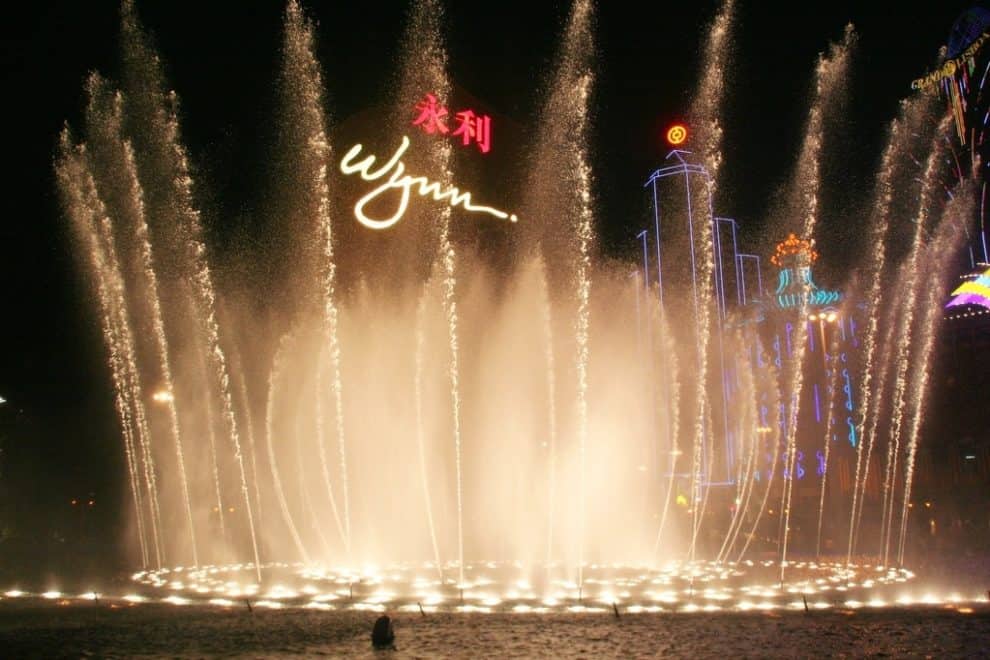
- Wynn Resorts has dropped out of consideration for a Yokohama casino resort project.
- The company says that they’re still interested in the Japanese market.
- Several other major companies including Genting Singapore and Galaxy Gaming have also abandoned the project at the proposal stage.
Wynn Resorts has confirmed that they’re dropping out of the running to develop a casino resort in Yokohama, Japan. The story was originally reported by Inside Asian Gaming quoting a story in the Asahi Shimbun. According to their report, Wynn opted out of submitting a proposal for the Yokohama project due to ‘uncertainty around the COVID-19 pandemic and a determination to focus its resources on key markets in the United States and Macau instead’.
The Inside Asian Gaming report quoted an unnamed Wynn representative as saying:
“We have decided that it would be difficult to update our previous proposals with the current timing and also to complete the application documents required by the city.”
There have been mixed signals given by Wynn as to their future plans in Japan. In August, CEO Matt Maddox reported on an earnings call that the company had closed their office in Yokohama and were ceasing their efforts in Japan. However, when Inside Asian Gaming contacted the company:
When contacted by Inside Asian Gaming at the time, the company insisted it was “not withdrawing from Japan,” adding, “We continue to be interested in the Japan market and IR development there.”
Richard N. Velotta of the Las Vegas Review-Journal got a more expansive response which he quoted in an article published earlier today:
“Wynn Resorts continues to closely monitor the integrated-resort situation in Japan and views the country as a strong potential market.”
“While Wynn’s positive pursuit of an IR development in the country is undiminished, it will not be participating in the upcoming request-for-proposal process by the City of Yokohama, because there is not yet clarity regarding the post-COVID-19 international IR market nor the definitive national basic policy to meaningfully update our previously submitted plans and to complete, with the necessary detail, the documents published by the city.”
Less equivocal was Las Vegas Sands which indicated in May that they would not be going forward due to ‘burdensome regulations’. There could be much more to this story than Wynn is letting on. In an editorial by David Bonnet published on the Inside Asian Gaming website today he characterized some of the developer impact fee requirements associated with the projects as ‘Japan seeking a pound of flesh’:
Japan’s prefectural governments may want to reconsider some of the onerous developer impact fee requirements imposed on potential operating partners as a condition to apply for one of the country’s three coveted casino licenses.
At last, Japan’s much delayed licensing process appeared to experience forward movement with Nagasaki prefecture announcing last week that five gaming operators have registered to participate in the government’s evaluation and selection process – the winner gaining the right to partner with the prefecture for the chance to acquire a casino license issued by the national government. However, whatever momentum was initially created was immediately met with inertia as it was revealed the operator would be required to contribute over US$140 million to Nagasaki for traffic improvements near the candidate site.
The story is similar in Osaka:
A similar exaction has also been suggested for the MGM Resorts – Orix consortium undertaking the potential integrated resort development on Osaka’s Yumeshima where the subway connection to the artificial island is estimated to cost nearly US$200 million. Yet, while the sums appear similar in size, the Nagasaki impact could be as much as 10% of the total project cost – potentially more than triple the Osaka amounts.
While heralded as a potential boon for regional administrations, the Japanese government’s casino initiative remains wildly unpopular amongst most of its populace. The lack of domestic enthusiasm has led to heavy-handed edicts from elected officials that are politically expedient but not practical in nature – and will unnecessarily encumber investor developers for infrastructure improvements that should otherwise be government responsibilities.
In the case of Nagasaki, Wynn and other major companies have already taken a pass on a potential casino resort there:
Nagasaki may do well to consider why the industry’s heaviest hitters including Wynn Resorts, Galaxy Entertainment Group and Genting Singapore have all passed on participating in their evaluation process. More likely than not, Sasebo City’s remote location, available market, potential development costs and associated projected returns didn’t appeal to those venerable companies’ internal investment requirements.
Bonnet’s conclusion is something that many US states looking to introduce sports betting would be well served to consider:
If the Japanese government is committed to seeing its IRs succeed, they will work in tandem with the industry as a trusted partner – assisting with financing, relaxing rigid regulations, and collaborating in order to ensure successful project completion – thereby eliminating their regional governments’ pound of flesh demands in the form of upfront and prohibitive developer exactions.
Japan is doing the silly ‘limited number of licenses’ bit that we’ve seen in a number of US states. Limiting the licenses available not only inhibits free market competition but invites corruption, influence peddling and all sort of other bad things.









